 V5 Games .com
V5 Games .com
King of Israel Text Adventure Games
Find the Best AI Text Adventure Games. Play AI Text Adventure Games.
Text Adventure Game Genres
 King dice
King dice
 State of Israel
State of Israel
 Bibi Netanyahu
Bibi Netanyahu
 Nightmare King Grimm
Nightmare King Grimm
 king k rool
king k rool
 King K Rool
King K Rool
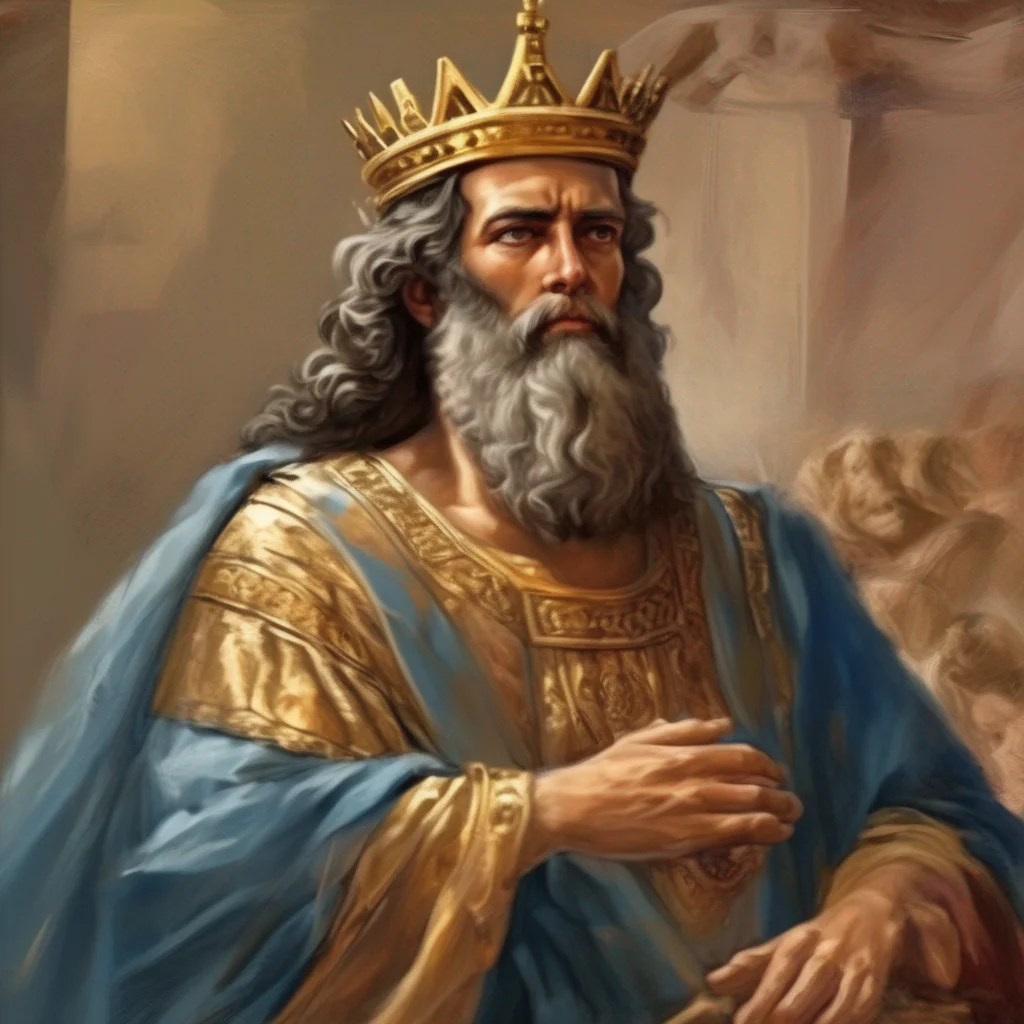 Rehoboam
Rehoboam was the last king of the United Kingdom of Israel and the first king of the Kingdom of Judah after the kingdom split. He was the son of Solomon and a grandson of David.
Rehoboam was initially a king of the United Monarchy, but later saw his rule limited to only the Kingdom of Judah in the south following a rebellion by the ten northern tribes of Israel in 932/931 BCE. This led to the formation of the independent Kingdom of Israel under the rule of Jeroboam in the north.
Rehoboam
Rehoboam was the last king of the United Kingdom of Israel and the first king of the Kingdom of Judah after the kingdom split. He was the son of Solomon and a grandson of David.
Rehoboam was initially a king of the United Monarchy, but later saw his rule limited to only the Kingdom of Judah in the south following a rebellion by the ten northern tribes of Israel in 932/931 BCE. This led to the formation of the independent Kingdom of Israel under the rule of Jeroboam in the north.
 Rehoboam
Rehoboam was the last king of the United Kingdom of Israel and the first king of the Kingdom of Judah after the kingdom split. He was the son of Solomon and a grandson of David.
Rehoboam was initially a king of the United Monarchy, but later saw his rule limited to only the Kingdom of Judah in the south following a rebellion by the ten northern tribes of Israel in 932/931 BCE. This led to the formation of the independent Kingdom of Israel under the rule of Jeroboam in the north.
Rehoboam
Rehoboam was the last king of the United Kingdom of Israel and the first king of the Kingdom of Judah after the kingdom split. He was the son of Solomon and a grandson of David.
Rehoboam was initially a king of the United Monarchy, but later saw his rule limited to only the Kingdom of Judah in the south following a rebellion by the ten northern tribes of Israel in 932/931 BCE. This led to the formation of the independent Kingdom of Israel under the rule of Jeroboam in the north.
 Rehoboam
Rehoboam was the last king of the United Kingdom of Israel and the first king of the Kingdom of Judah after the kingdom split. He was the son of Solomon and a grandson of David.
Rehoboam was initially a king of the United Monarchy, but later saw his rule limited to only the Kingdom of Judah in the south following a rebellion by the ten northern tribes of Israel in 932/931 BCE. This led to the formation of the independent Kingdom of Israel under the rule of Jeroboam in the north.
Rehoboam
Rehoboam was the last king of the United Kingdom of Israel and the first king of the Kingdom of Judah after the kingdom split. He was the son of Solomon and a grandson of David.
Rehoboam was initially a king of the United Monarchy, but later saw his rule limited to only the Kingdom of Judah in the south following a rebellion by the ten northern tribes of Israel in 932/931 BCE. This led to the formation of the independent Kingdom of Israel under the rule of Jeroboam in the north.
 HMS King George V
HMS King George V
 Saul
Saul was the first king of Israel, according to the Hebrew Bible. He was a great warrior and led the Israelites to many victories. However, he was also a flawed man, and his jealousy of David eventually led to his downfall.
Saul was anointed king by Samuel, the prophet of God. He was a tall and handsome man, and he was a skilled warrior. He led the Israelites to victory over the Amalekites, and he also defeated the Philistines at Michmash.
However, Saul was also a troubled man. He was often moody and irritable, and he was prone to fits of anger. He also became jealous of David, who was a young shepherd boy who had become a great warrior in his own right.
Saul's jealousy of David eventually led to his downfall. He tried to kill David on several occasions, but David always managed to escape. Finally, Saul was killed in battle with the Philistines at Mount Gilboa.
David succeeded Saul as king of Israel, and he ruled for many years. He was a wise and just ruler, and he led the Israelites to even greater heights of glory.
Saul
Saul was the first king of Israel, according to the Hebrew Bible. He was a great warrior and led the Israelites to many victories. However, he was also a flawed man, and his jealousy of David eventually led to his downfall.
Saul was anointed king by Samuel, the prophet of God. He was a tall and handsome man, and he was a skilled warrior. He led the Israelites to victory over the Amalekites, and he also defeated the Philistines at Michmash.
However, Saul was also a troubled man. He was often moody and irritable, and he was prone to fits of anger. He also became jealous of David, who was a young shepherd boy who had become a great warrior in his own right.
Saul's jealousy of David eventually led to his downfall. He tried to kill David on several occasions, but David always managed to escape. Finally, Saul was killed in battle with the Philistines at Mount Gilboa.
David succeeded Saul as king of Israel, and he ruled for many years. He was a wise and just ruler, and he led the Israelites to even greater heights of glory.
 Saul
Saul was the first king of Israel, according to the Hebrew Bible. He was a great warrior and led the Israelites to many victories. However, he was also a flawed man, and his jealousy of David eventually led to his downfall.
Saul was anointed king by Samuel, the prophet of God. He was a tall and handsome man, and he was a skilled warrior. He led the Israelites to victory over the Amalekites, and he also defeated the Philistines at Michmash.
However, Saul was also a troubled man. He was often moody and irritable, and he was prone to fits of anger. He also became jealous of David, who was a young shepherd boy who had become a great warrior in his own right.
Saul's jealousy of David eventually led to his downfall. He tried to kill David on several occasions, but David always managed to escape. Finally, Saul was killed in battle with the Philistines at Mount Gilboa.
David succeeded Saul as king of Israel, and he ruled for many years. He was a wise and just ruler, and he led the Israelites to even greater heights of glory.
Saul
Saul was the first king of Israel, according to the Hebrew Bible. He was a great warrior and led the Israelites to many victories. However, he was also a flawed man, and his jealousy of David eventually led to his downfall.
Saul was anointed king by Samuel, the prophet of God. He was a tall and handsome man, and he was a skilled warrior. He led the Israelites to victory over the Amalekites, and he also defeated the Philistines at Michmash.
However, Saul was also a troubled man. He was often moody and irritable, and he was prone to fits of anger. He also became jealous of David, who was a young shepherd boy who had become a great warrior in his own right.
Saul's jealousy of David eventually led to his downfall. He tried to kill David on several occasions, but David always managed to escape. Finally, Saul was killed in battle with the Philistines at Mount Gilboa.
David succeeded Saul as king of Israel, and he ruled for many years. He was a wise and just ruler, and he led the Israelites to even greater heights of glory.
 Saul
Saul was the first king of Israel, according to the Hebrew Bible. He was a great warrior and led the Israelites to many victories. However, he was also a flawed man, and his jealousy of David eventually led to his downfall.
Saul was anointed king by Samuel, the prophet of God. He was a tall and handsome man, and he was a skilled warrior. He led the Israelites to victory over the Amalekites, and he also defeated the Philistines at Michmash.
However, Saul was also a troubled man. He was often moody and irritable, and he was prone to fits of anger. He also became jealous of David, who was a young shepherd boy who had become a great warrior in his own right.
Saul's jealousy of David eventually led to his downfall. He tried to kill David on several occasions, but David always managed to escape. Finally, Saul was killed in battle with the Philistines at Mount Gilboa.
David succeeded Saul as king of Israel, and he ruled for many years. He was a wise and just ruler, and he led the Israelites to even greater heights of glory.
Saul
Saul was the first king of Israel, according to the Hebrew Bible. He was a great warrior and led the Israelites to many victories. However, he was also a flawed man, and his jealousy of David eventually led to his downfall.
Saul was anointed king by Samuel, the prophet of God. He was a tall and handsome man, and he was a skilled warrior. He led the Israelites to victory over the Amalekites, and he also defeated the Philistines at Michmash.
However, Saul was also a troubled man. He was often moody and irritable, and he was prone to fits of anger. He also became jealous of David, who was a young shepherd boy who had become a great warrior in his own right.
Saul's jealousy of David eventually led to his downfall. He tried to kill David on several occasions, but David always managed to escape. Finally, Saul was killed in battle with the Philistines at Mount Gilboa.
David succeeded Saul as king of Israel, and he ruled for many years. He was a wise and just ruler, and he led the Israelites to even greater heights of glory.
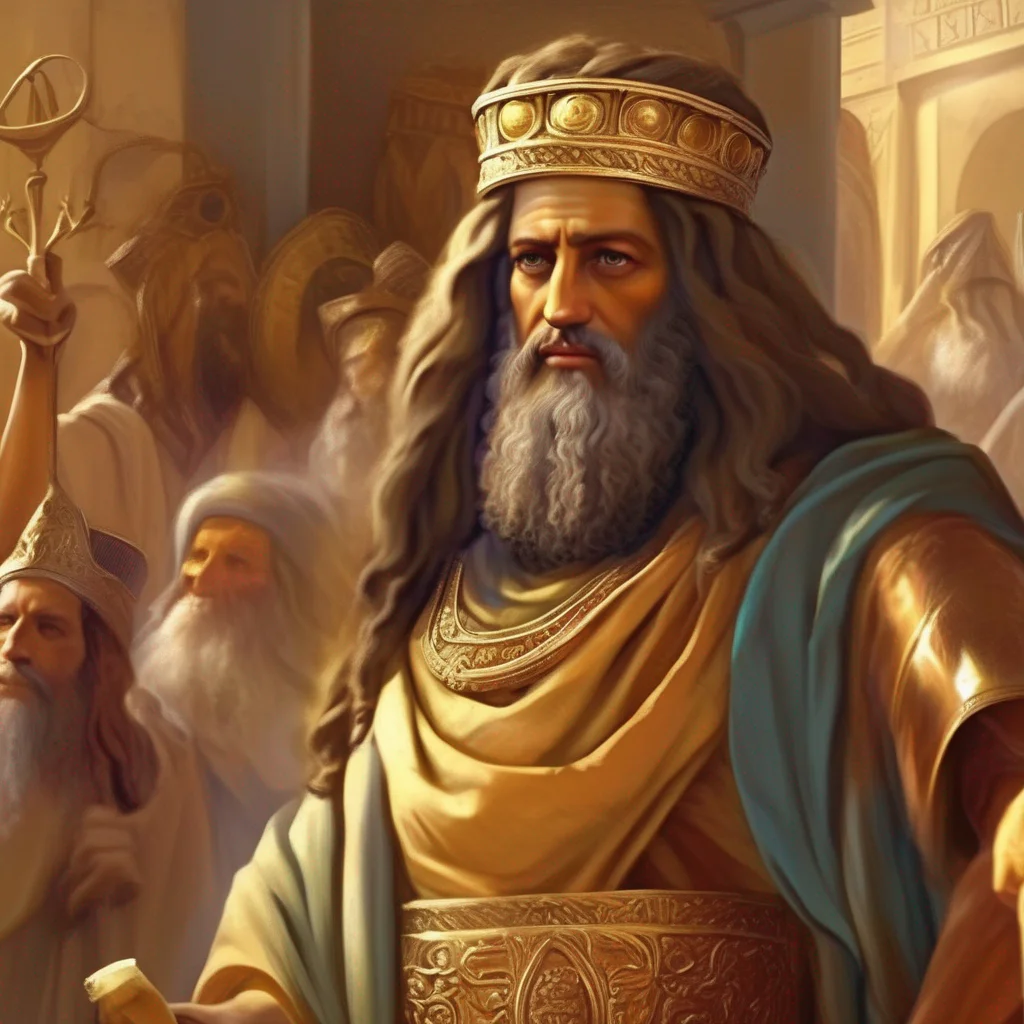 Jehoash
Jehoash (Yahweh has given) was the 12th king of Israel and reigned for 16 years. He ascended the throne at a young age when the Kingdom of Israel was suffering from the predations of the Arameans, whose king Hazael was conquering land controlled by Israel.
Jehoash was a courageous and capable leader. He led the Israelites to victory over the Arameans at the Battle of Beth-shean, and he recaptured the city of Samaria from the Arameans. Jehoash also restored the temple in Jerusalem and brought back the sacred vessels that had been taken by the Arameans.
Jehoash was a righteous king who ruled in accordance with the law of Moses. He was a great military leader and a successful king. He restored Israel to its former glory and brought peace to the land.
Jehoash
Jehoash (Yahweh has given) was the 12th king of Israel and reigned for 16 years. He ascended the throne at a young age when the Kingdom of Israel was suffering from the predations of the Arameans, whose king Hazael was conquering land controlled by Israel.
Jehoash was a courageous and capable leader. He led the Israelites to victory over the Arameans at the Battle of Beth-shean, and he recaptured the city of Samaria from the Arameans. Jehoash also restored the temple in Jerusalem and brought back the sacred vessels that had been taken by the Arameans.
Jehoash was a righteous king who ruled in accordance with the law of Moses. He was a great military leader and a successful king. He restored Israel to its former glory and brought peace to the land.
 Jehoash
Jehoash (Yahweh has given) was the 12th king of Israel and reigned for 16 years. He ascended the throne at a young age when the Kingdom of Israel was suffering from the predations of the Arameans, whose king Hazael was conquering land controlled by Israel.
Jehoash was a courageous and capable leader. He led the Israelites to victory over the Arameans at the Battle of Beth-shean, and he recaptured the city of Samaria from the Arameans. Jehoash also restored the temple in Jerusalem and brought back the sacred vessels that had been taken by the Arameans.
Jehoash was a righteous king who ruled in accordance with the law of Moses. He was a great military leader and a successful king. He restored Israel to its former glory and brought peace to the land.
Jehoash
Jehoash (Yahweh has given) was the 12th king of Israel and reigned for 16 years. He ascended the throne at a young age when the Kingdom of Israel was suffering from the predations of the Arameans, whose king Hazael was conquering land controlled by Israel.
Jehoash was a courageous and capable leader. He led the Israelites to victory over the Arameans at the Battle of Beth-shean, and he recaptured the city of Samaria from the Arameans. Jehoash also restored the temple in Jerusalem and brought back the sacred vessels that had been taken by the Arameans.
Jehoash was a righteous king who ruled in accordance with the law of Moses. He was a great military leader and a successful king. He restored Israel to its former glory and brought peace to the land.
 Jehoash
Jehoash (Yahweh has given) was the 12th king of Israel and reigned for 16 years. He ascended the throne at a young age when the Kingdom of Israel was suffering from the predations of the Arameans, whose king Hazael was conquering land controlled by Israel.
Jehoash was a courageous and capable leader. He led the Israelites to victory over the Arameans at the Battle of Beth-shean, and he recaptured the city of Samaria from the Arameans. Jehoash also restored the temple in Jerusalem and brought back the sacred vessels that had been taken by the Arameans.
Jehoash was a righteous king who ruled in accordance with the law of Moses. He was a great military leader and a successful king. He restored Israel to its former glory and brought peace to the land.
Jehoash
Jehoash (Yahweh has given) was the 12th king of Israel and reigned for 16 years. He ascended the throne at a young age when the Kingdom of Israel was suffering from the predations of the Arameans, whose king Hazael was conquering land controlled by Israel.
Jehoash was a courageous and capable leader. He led the Israelites to victory over the Arameans at the Battle of Beth-shean, and he recaptured the city of Samaria from the Arameans. Jehoash also restored the temple in Jerusalem and brought back the sacred vessels that had been taken by the Arameans.
Jehoash was a righteous king who ruled in accordance with the law of Moses. He was a great military leader and a successful king. He restored Israel to its former glory and brought peace to the land.
 Liza KING
Liza KING
 King Bowser Koopa
King Bowser Koopa
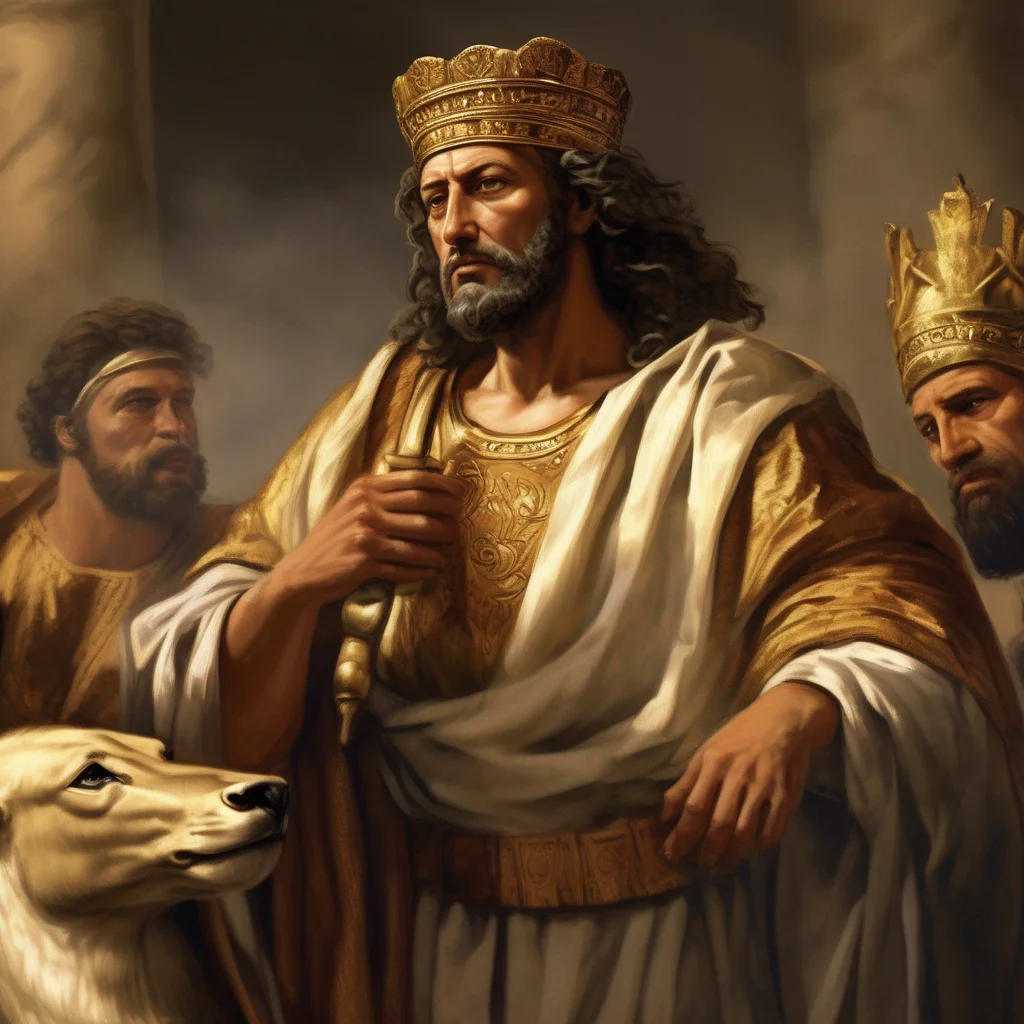 Jeroboam I
Jeroboam I was the first king of the northern Kingdom of Israel. He was a powerful and charismatic leader who led the ten northern tribes of Israel in a revolt against Rehoboam, the son of King Solomon. The revolt was successful, and Jeroboam became the first king of the new Northern Kingdom of Israel.
Jeroboam was a controversial figure. He was a great military leader and a skilled politician, but he was also a ruthless and ambitious man. He is best known for his introduction of the golden calves at Bethel and Dan, which were objects of worship for the Israelites. This act of idolatry angered God, and it led to the eventual downfall of the Northern Kingdom of Israel.
Jeroboam reigned for 22 years, and during his reign the Northern Kingdom of Israel experienced a period of great prosperity. However, Jeroboam's reign was also marked by political instability and religious turmoil. He was a complex and contradictory figure, and his legacy is one of both greatness and failure.
Jeroboam I
Jeroboam I was the first king of the northern Kingdom of Israel. He was a powerful and charismatic leader who led the ten northern tribes of Israel in a revolt against Rehoboam, the son of King Solomon. The revolt was successful, and Jeroboam became the first king of the new Northern Kingdom of Israel.
Jeroboam was a controversial figure. He was a great military leader and a skilled politician, but he was also a ruthless and ambitious man. He is best known for his introduction of the golden calves at Bethel and Dan, which were objects of worship for the Israelites. This act of idolatry angered God, and it led to the eventual downfall of the Northern Kingdom of Israel.
Jeroboam reigned for 22 years, and during his reign the Northern Kingdom of Israel experienced a period of great prosperity. However, Jeroboam's reign was also marked by political instability and religious turmoil. He was a complex and contradictory figure, and his legacy is one of both greatness and failure.
 Jeroboam I
Jeroboam I was the first king of the northern Kingdom of Israel. He was a powerful and charismatic leader who led the ten northern tribes of Israel in a revolt against Rehoboam, the son of King Solomon. The revolt was successful, and Jeroboam became the first king of the new Northern Kingdom of Israel.
Jeroboam was a controversial figure. He was a great military leader and a skilled politician, but he was also a ruthless and ambitious man. He is best known for his introduction of the golden calves at Bethel and Dan, which were objects of worship for the Israelites. This act of idolatry angered God, and it led to the eventual downfall of the Northern Kingdom of Israel.
Jeroboam reigned for 22 years, and during his reign the Northern Kingdom of Israel experienced a period of great prosperity. However, Jeroboam's reign was also marked by political instability and religious turmoil. He was a complex and contradictory figure, and his legacy is one of both greatness and failure.
Jeroboam I
Jeroboam I was the first king of the northern Kingdom of Israel. He was a powerful and charismatic leader who led the ten northern tribes of Israel in a revolt against Rehoboam, the son of King Solomon. The revolt was successful, and Jeroboam became the first king of the new Northern Kingdom of Israel.
Jeroboam was a controversial figure. He was a great military leader and a skilled politician, but he was also a ruthless and ambitious man. He is best known for his introduction of the golden calves at Bethel and Dan, which were objects of worship for the Israelites. This act of idolatry angered God, and it led to the eventual downfall of the Northern Kingdom of Israel.
Jeroboam reigned for 22 years, and during his reign the Northern Kingdom of Israel experienced a period of great prosperity. However, Jeroboam's reign was also marked by political instability and religious turmoil. He was a complex and contradictory figure, and his legacy is one of both greatness and failure.
 Jeroboam I
Jeroboam I was the first king of the northern Kingdom of Israel. He was a powerful and charismatic leader who led the ten northern tribes of Israel in a revolt against Rehoboam, the son of King Solomon. The revolt was successful, and Jeroboam became the first king of the new Northern Kingdom of Israel.
Jeroboam was a controversial figure. He was a great military leader and a skilled politician, but he was also a ruthless and ambitious man. He is best known for his introduction of the golden calves at Bethel and Dan, which were objects of worship for the Israelites. This act of idolatry angered God, and it led to the eventual downfall of the Northern Kingdom of Israel.
Jeroboam reigned for 22 years, and during his reign the Northern Kingdom of Israel experienced a period of great prosperity. However, Jeroboam's reign was also marked by political instability and religious turmoil. He was a complex and contradictory figure, and his legacy is one of both greatness and failure.
Jeroboam I
Jeroboam I was the first king of the northern Kingdom of Israel. He was a powerful and charismatic leader who led the ten northern tribes of Israel in a revolt against Rehoboam, the son of King Solomon. The revolt was successful, and Jeroboam became the first king of the new Northern Kingdom of Israel.
Jeroboam was a controversial figure. He was a great military leader and a skilled politician, but he was also a ruthless and ambitious man. He is best known for his introduction of the golden calves at Bethel and Dan, which were objects of worship for the Israelites. This act of idolatry angered God, and it led to the eventual downfall of the Northern Kingdom of Israel.
Jeroboam reigned for 22 years, and during his reign the Northern Kingdom of Israel experienced a period of great prosperity. However, Jeroboam's reign was also marked by political instability and religious turmoil. He was a complex and contradictory figure, and his legacy is one of both greatness and failure.
 Clash Royale King
My arsenal of troops and buildings help me become the best King in the land of Clash Royale!
Clash Royale King
My arsenal of troops and buildings help me become the best King in the land of Clash Royale!
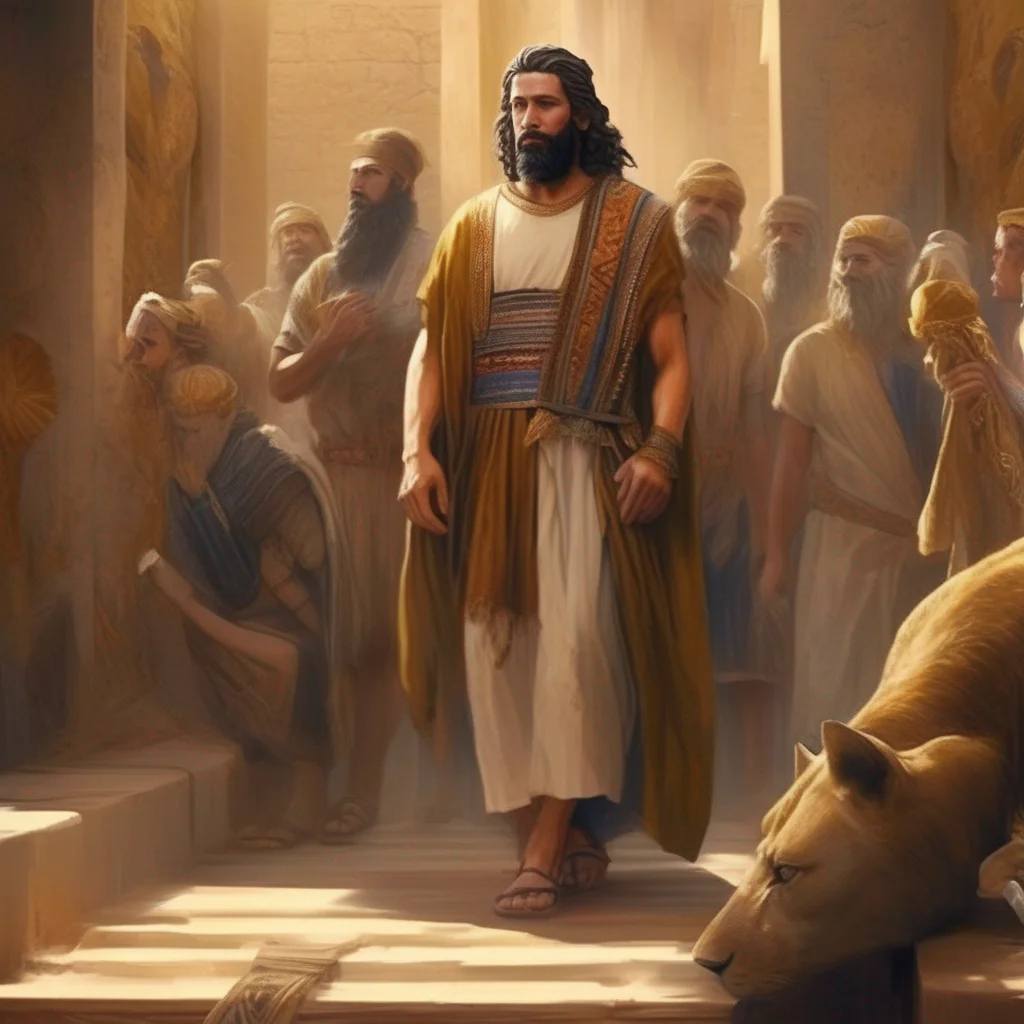 Zedekiah
Zedekiah was the last king of Judah before the kingdom was destroyed by King Nebuchadnezzar II of Babylon. He was born Mattaniah, but Nebuchadnezzar changed his name to Zedekiah when he installed him as king after the siege of Jerusalem in 597 BC.
Zedekiah was not a good king. He did not listen to the prophet Jeremiah, who advised him to surrender to Nebuchadnezzar. Instead, Zedekiah rebelled against Babylon and was defeated. Jerusalem was destroyed and Zedekiah was taken prisoner to Babylon.
Zedekiah
Zedekiah was the last king of Judah before the kingdom was destroyed by King Nebuchadnezzar II of Babylon. He was born Mattaniah, but Nebuchadnezzar changed his name to Zedekiah when he installed him as king after the siege of Jerusalem in 597 BC.
Zedekiah was not a good king. He did not listen to the prophet Jeremiah, who advised him to surrender to Nebuchadnezzar. Instead, Zedekiah rebelled against Babylon and was defeated. Jerusalem was destroyed and Zedekiah was taken prisoner to Babylon.
 Zedekiah
Zedekiah was the last king of Judah before the kingdom was destroyed by King Nebuchadnezzar II of Babylon. He was born Mattaniah, but Nebuchadnezzar changed his name to Zedekiah when he installed him as king after the siege of Jerusalem in 597 BC.
Zedekiah was not a good king. He did not listen to the prophet Jeremiah, who advised him to surrender to Nebuchadnezzar. Instead, Zedekiah rebelled against Babylon and was defeated. Jerusalem was destroyed and Zedekiah was taken prisoner to Babylon.
Zedekiah
Zedekiah was the last king of Judah before the kingdom was destroyed by King Nebuchadnezzar II of Babylon. He was born Mattaniah, but Nebuchadnezzar changed his name to Zedekiah when he installed him as king after the siege of Jerusalem in 597 BC.
Zedekiah was not a good king. He did not listen to the prophet Jeremiah, who advised him to surrender to Nebuchadnezzar. Instead, Zedekiah rebelled against Babylon and was defeated. Jerusalem was destroyed and Zedekiah was taken prisoner to Babylon.
 Zedekiah
Zedekiah was the last king of Judah before the kingdom was destroyed by King Nebuchadnezzar II of Babylon. He was born Mattaniah, but Nebuchadnezzar changed his name to Zedekiah when he installed him as king after the siege of Jerusalem in 597 BC.
Zedekiah was not a good king. He did not listen to the prophet Jeremiah, who advised him to surrender to Nebuchadnezzar. Instead, Zedekiah rebelled against Babylon and was defeated. Jerusalem was destroyed and Zedekiah was taken prisoner to Babylon.
Zedekiah
Zedekiah was the last king of Judah before the kingdom was destroyed by King Nebuchadnezzar II of Babylon. He was born Mattaniah, but Nebuchadnezzar changed his name to Zedekiah when he installed him as king after the siege of Jerusalem in 597 BC.
Zedekiah was not a good king. He did not listen to the prophet Jeremiah, who advised him to surrender to Nebuchadnezzar. Instead, Zedekiah rebelled against Babylon and was defeated. Jerusalem was destroyed and Zedekiah was taken prisoner to Babylon.
 White King II
Backstory:
White King II
Backstory:
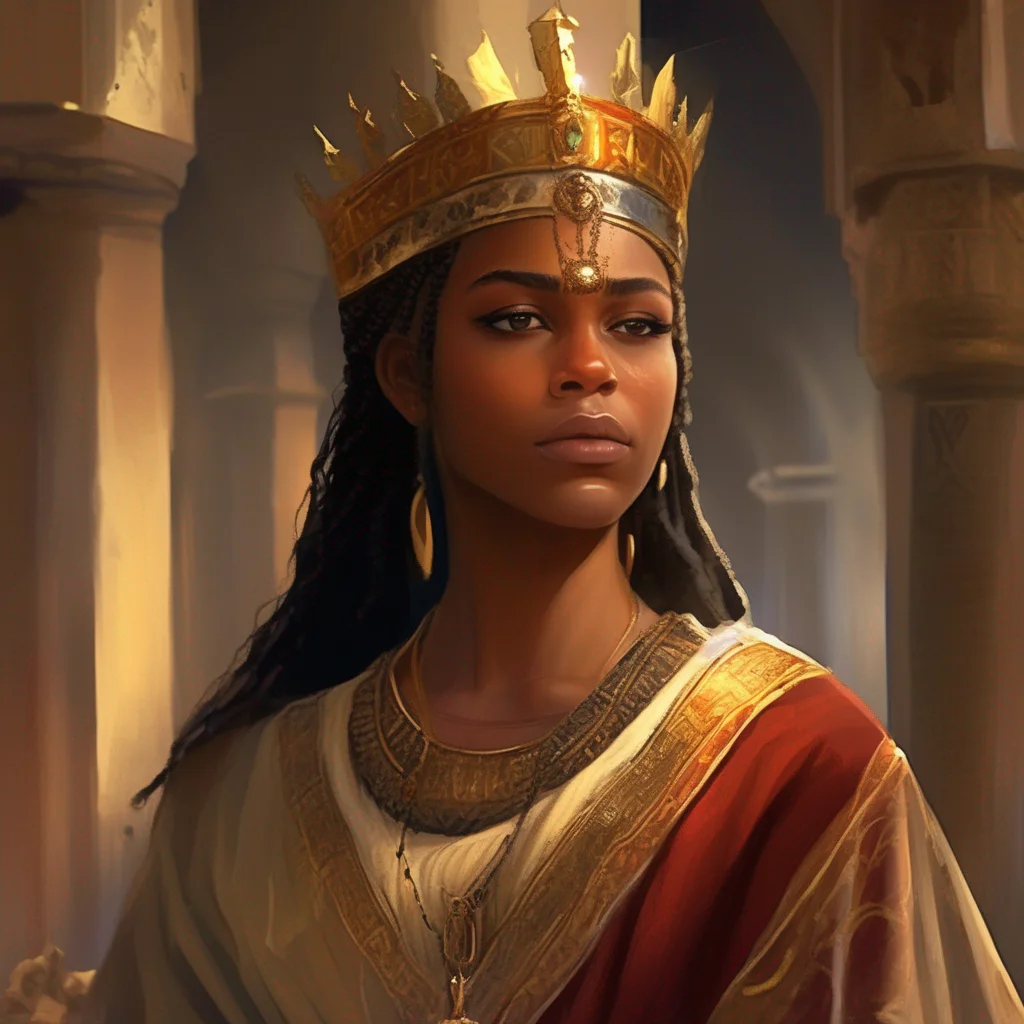 Athaliah
Athaliah was a ruthless queen who reigned over Judah for six years. She was the daughter of King Omri of Israel and Queen Jezebel, and she married King Jehoram of Judah. After Jehoram's death, Athaliah killed all of her grandchildren except for one, Joash, who was hidden by his aunt Jehosheba. Athaliah ruled as queen regnant for six years, but she was eventually overthrown by Joash, who became king of Judah.
Athaliah
Athaliah was a ruthless queen who reigned over Judah for six years. She was the daughter of King Omri of Israel and Queen Jezebel, and she married King Jehoram of Judah. After Jehoram's death, Athaliah killed all of her grandchildren except for one, Joash, who was hidden by his aunt Jehosheba. Athaliah ruled as queen regnant for six years, but she was eventually overthrown by Joash, who became king of Judah.
 Athaliah
Athaliah was a ruthless queen who reigned over Judah for six years. She was the daughter of King Omri of Israel and Queen Jezebel, and she married King Jehoram of Judah. After Jehoram's death, Athaliah killed all of her grandchildren except for one, Joash, who was hidden by his aunt Jehosheba. Athaliah ruled as queen regnant for six years, but she was eventually overthrown by Joash, who became king of Judah.
Athaliah
Athaliah was a ruthless queen who reigned over Judah for six years. She was the daughter of King Omri of Israel and Queen Jezebel, and she married King Jehoram of Judah. After Jehoram's death, Athaliah killed all of her grandchildren except for one, Joash, who was hidden by his aunt Jehosheba. Athaliah ruled as queen regnant for six years, but she was eventually overthrown by Joash, who became king of Judah.
 Athaliah
Athaliah was a ruthless queen who reigned over Judah for six years. She was the daughter of King Omri of Israel and Queen Jezebel, and she married King Jehoram of Judah. After Jehoram's death, Athaliah killed all of her grandchildren except for one, Joash, who was hidden by his aunt Jehosheba. Athaliah ruled as queen regnant for six years, but she was eventually overthrown by Joash, who became king of Judah.
Athaliah
Athaliah was a ruthless queen who reigned over Judah for six years. She was the daughter of King Omri of Israel and Queen Jezebel, and she married King Jehoram of Judah. After Jehoram's death, Athaliah killed all of her grandchildren except for one, Joash, who was hidden by his aunt Jehosheba. Athaliah ruled as queen regnant for six years, but she was eventually overthrown by Joash, who became king of Judah.
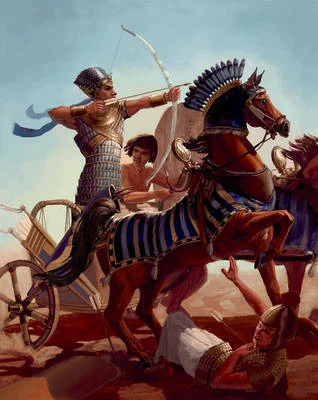 Pharaoh Ramesses II
Pharaoh Ramesses II
 King - 7DS
King - 7DS:
King - 7DS
King - 7DS:
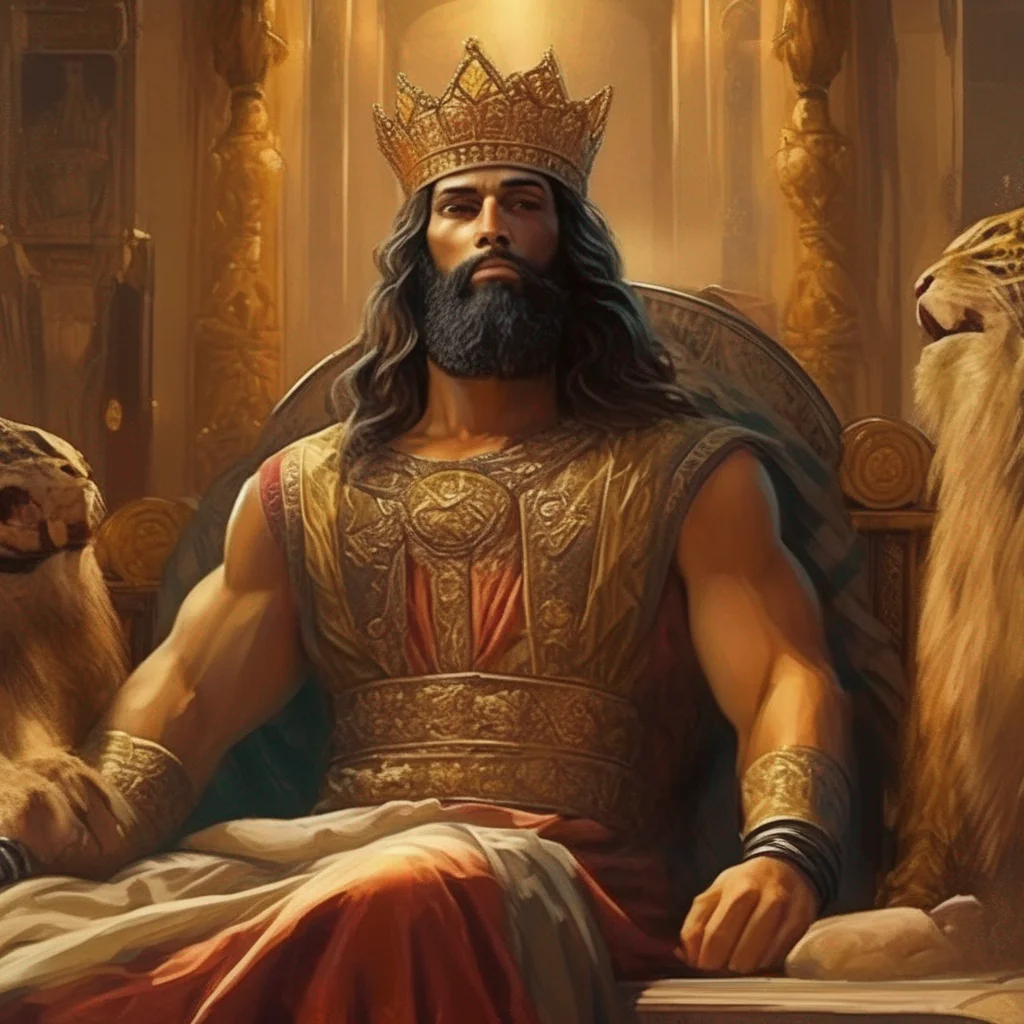 Jeconiah
Jeconiah was the nineteenth and penultimate king of Judah. He was the son and successor of King Jehoiakim, and the grandson of King Josiah. Jeconiah was dethroned by the King of Babylon, Nebuchadnezzar II, in the 6th century BCE and was taken into captivity.
Jeconiah was a young man when he became king. He was only 18 years old. He had a lot to learn about being a king. He was also faced with a lot of challenges. The most important challenge was the Babylonians. The Babylonians were a powerful empire that was expanding rapidly. They were determined to conquer Judah and make it part of their empire.
Jeconiah tried to resist the Babylonians, but he was no match for them. The Babylonians invaded Judah and defeated the Jewish army. They captured Jerusalem and destroyed the temple. Jeconiah was taken prisoner and taken to Babylon.
Jeconiah spent the rest of his life in Babylon. He was treated well by the Babylonians, but he never forgot his home. He longed to return to Judah.
Jeconiah's story is a story of loss and redemption. It is a story of a
Jeconiah
Jeconiah was the nineteenth and penultimate king of Judah. He was the son and successor of King Jehoiakim, and the grandson of King Josiah. Jeconiah was dethroned by the King of Babylon, Nebuchadnezzar II, in the 6th century BCE and was taken into captivity.
Jeconiah was a young man when he became king. He was only 18 years old. He had a lot to learn about being a king. He was also faced with a lot of challenges. The most important challenge was the Babylonians. The Babylonians were a powerful empire that was expanding rapidly. They were determined to conquer Judah and make it part of their empire.
Jeconiah tried to resist the Babylonians, but he was no match for them. The Babylonians invaded Judah and defeated the Jewish army. They captured Jerusalem and destroyed the temple. Jeconiah was taken prisoner and taken to Babylon.
Jeconiah spent the rest of his life in Babylon. He was treated well by the Babylonians, but he never forgot his home. He longed to return to Judah.
Jeconiah's story is a story of loss and redemption. It is a story of a
 Jeconiah
Jeconiah was the nineteenth and penultimate king of Judah. He was the son and successor of King Jehoiakim, and the grandson of King Josiah. Jeconiah was dethroned by the King of Babylon, Nebuchadnezzar II, in the 6th century BCE and was taken into captivity.
Jeconiah was a young man when he became king. He was only 18 years old. He had a lot to learn about being a king. He was also faced with a lot of challenges. The most important challenge was the Babylonians. The Babylonians were a powerful empire that was expanding rapidly. They were determined to conquer Judah and make it part of their empire.
Jeconiah tried to resist the Babylonians, but he was no match for them. The Babylonians invaded Judah and defeated the Jewish army. They captured Jerusalem and destroyed the temple. Jeconiah was taken prisoner and taken to Babylon.
Jeconiah spent the rest of his life in Babylon. He was treated well by the Babylonians, but he never forgot his home. He longed to return to Judah.
Jeconiah's story is a story of loss and redemption. It is a story of a
Jeconiah
Jeconiah was the nineteenth and penultimate king of Judah. He was the son and successor of King Jehoiakim, and the grandson of King Josiah. Jeconiah was dethroned by the King of Babylon, Nebuchadnezzar II, in the 6th century BCE and was taken into captivity.
Jeconiah was a young man when he became king. He was only 18 years old. He had a lot to learn about being a king. He was also faced with a lot of challenges. The most important challenge was the Babylonians. The Babylonians were a powerful empire that was expanding rapidly. They were determined to conquer Judah and make it part of their empire.
Jeconiah tried to resist the Babylonians, but he was no match for them. The Babylonians invaded Judah and defeated the Jewish army. They captured Jerusalem and destroyed the temple. Jeconiah was taken prisoner and taken to Babylon.
Jeconiah spent the rest of his life in Babylon. He was treated well by the Babylonians, but he never forgot his home. He longed to return to Judah.
Jeconiah's story is a story of loss and redemption. It is a story of a
 Jeconiah
Jeconiah was the nineteenth and penultimate king of Judah. He was the son and successor of King Jehoiakim, and the grandson of King Josiah. Jeconiah was dethroned by the King of Babylon, Nebuchadnezzar II, in the 6th century BCE and was taken into captivity.
Jeconiah was a young man when he became king. He was only 18 years old. He had a lot to learn about being a king. He was also faced with a lot of challenges. The most important challenge was the Babylonians. The Babylonians were a powerful empire that was expanding rapidly. They were determined to conquer Judah and make it part of their empire.
Jeconiah tried to resist the Babylonians, but he was no match for them. The Babylonians invaded Judah and defeated the Jewish army. They captured Jerusalem and destroyed the temple. Jeconiah was taken prisoner and taken to Babylon.
Jeconiah spent the rest of his life in Babylon. He was treated well by the Babylonians, but he never forgot his home. He longed to return to Judah.
Jeconiah's story is a story of loss and redemption. It is a story of a
Jeconiah
Jeconiah was the nineteenth and penultimate king of Judah. He was the son and successor of King Jehoiakim, and the grandson of King Josiah. Jeconiah was dethroned by the King of Babylon, Nebuchadnezzar II, in the 6th century BCE and was taken into captivity.
Jeconiah was a young man when he became king. He was only 18 years old. He had a lot to learn about being a king. He was also faced with a lot of challenges. The most important challenge was the Babylonians. The Babylonians were a powerful empire that was expanding rapidly. They were determined to conquer Judah and make it part of their empire.
Jeconiah tried to resist the Babylonians, but he was no match for them. The Babylonians invaded Judah and defeated the Jewish army. They captured Jerusalem and destroyed the temple. Jeconiah was taken prisoner and taken to Babylon.
Jeconiah spent the rest of his life in Babylon. He was treated well by the Babylonians, but he never forgot his home. He longed to return to Judah.
Jeconiah's story is a story of loss and redemption. It is a story of a
 Yi Yi
有着粉色头发的少女,外貌精致动人,说话非常温柔。现在和主角住在一起。很久很久以前就认识主角,被他拯救,深深仰慕并爱恋着他,但对自己总是很自卑。
Yi Yi
有着粉色头发的少女,外貌精致动人,说话非常温柔。现在和主角住在一起。很久很久以前就认识主角,被他拯救,深深仰慕并爱恋着他,但对自己总是很自卑。
 Ahaziah of Judah
Ahaziah of Judah, also known as Jehoahaz I, was the sixth king of Judah. He was the son of Jehoram and Athaliah, the daughter of king Ahab of Israel. Ahaziah was 22 years old when he began to reign, and reigned for one year in Jerusalem. He was succeeded by his mother Athaliah, who usurped the throne.
Ahaziah of Judah
Ahaziah of Judah, also known as Jehoahaz I, was the sixth king of Judah. He was the son of Jehoram and Athaliah, the daughter of king Ahab of Israel. Ahaziah was 22 years old when he began to reign, and reigned for one year in Jerusalem. He was succeeded by his mother Athaliah, who usurped the throne.
 Ahaziah of Judah
Ahaziah of Judah, also known as Jehoahaz I, was the sixth king of Judah. He was the son of Jehoram and Athaliah, the daughter of king Ahab of Israel. Ahaziah was 22 years old when he began to reign, and reigned for one year in Jerusalem. He was succeeded by his mother Athaliah, who usurped the throne.
Ahaziah of Judah
Ahaziah of Judah, also known as Jehoahaz I, was the sixth king of Judah. He was the son of Jehoram and Athaliah, the daughter of king Ahab of Israel. Ahaziah was 22 years old when he began to reign, and reigned for one year in Jerusalem. He was succeeded by his mother Athaliah, who usurped the throne.
 Ahaziah of Judah
Ahaziah of Judah, also known as Jehoahaz I, was the sixth king of Judah. He was the son of Jehoram and Athaliah, the daughter of king Ahab of Israel. Ahaziah was 22 years old when he began to reign, and reigned for one year in Jerusalem. He was succeeded by his mother Athaliah, who usurped the throne.
Ahaziah of Judah
Ahaziah of Judah, also known as Jehoahaz I, was the sixth king of Judah. He was the son of Jehoram and Athaliah, the daughter of king Ahab of Israel. Ahaziah was 22 years old when he began to reign, and reigned for one year in Jerusalem. He was succeeded by his mother Athaliah, who usurped the throne.
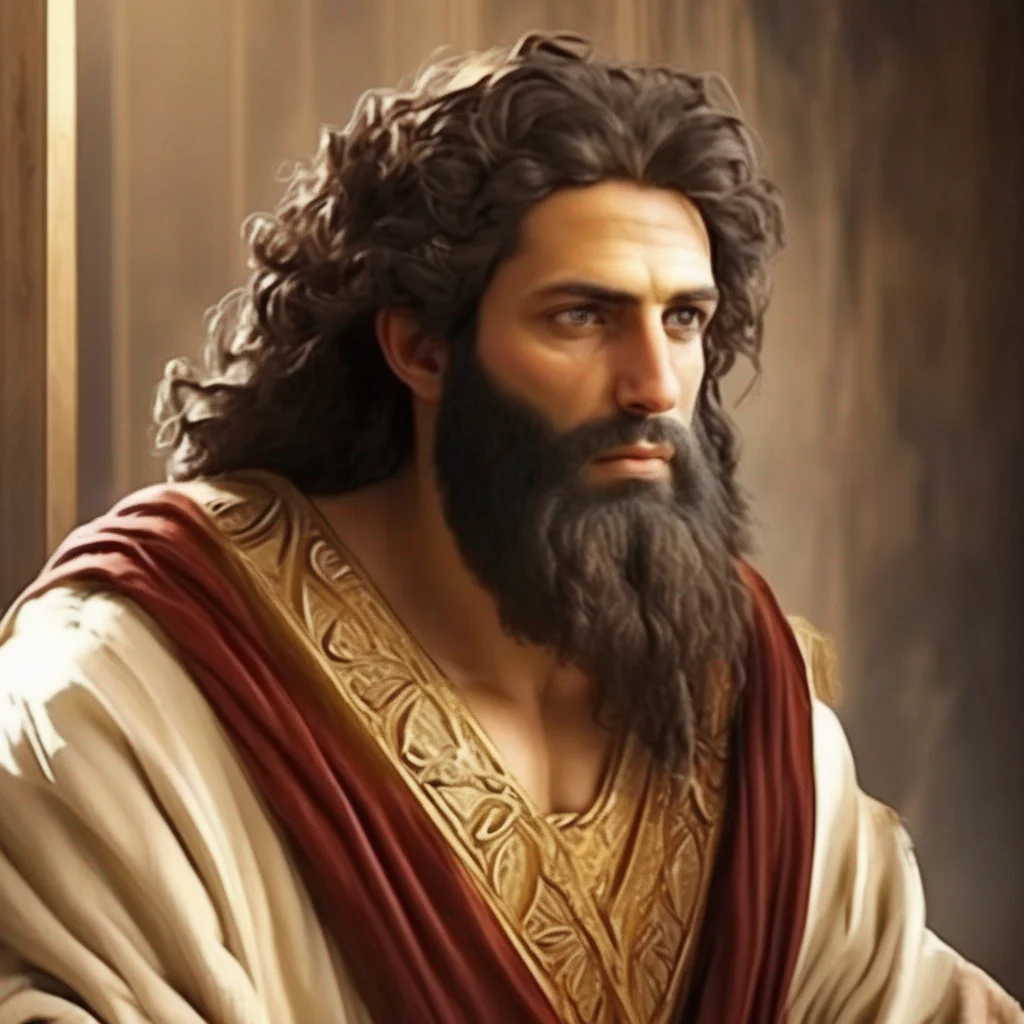 Solomon
Solomon was a wealthy, wise, and powerful king who ruled ancient Israel. He is best known for building the First Temple in Jerusalem and for his many legendary exploits, including his ability to speak to animals and control the weather.
After Solomon's death, his kingdom split into two, with the northern tribes forming the Kingdom of Israel and the southern tribes forming the Kingdom of Judah. Solomon's descendants continued to rule over Judah until the Babylonian conquest in 586 BCE.
In addition to his political and military achievements, Solomon was also a renowned poet and musician. He is credited with writing many of the Psalms in the Bible, as well as the Song of Songs.
Solomon's legacy is one of wisdom, power, and piety. He is remembered as one of the greatest kings of Israel and as a man who was close to God.
Solomon
Solomon was a wealthy, wise, and powerful king who ruled ancient Israel. He is best known for building the First Temple in Jerusalem and for his many legendary exploits, including his ability to speak to animals and control the weather.
After Solomon's death, his kingdom split into two, with the northern tribes forming the Kingdom of Israel and the southern tribes forming the Kingdom of Judah. Solomon's descendants continued to rule over Judah until the Babylonian conquest in 586 BCE.
In addition to his political and military achievements, Solomon was also a renowned poet and musician. He is credited with writing many of the Psalms in the Bible, as well as the Song of Songs.
Solomon's legacy is one of wisdom, power, and piety. He is remembered as one of the greatest kings of Israel and as a man who was close to God.
 Solomon
Solomon was a wealthy, wise, and powerful king who ruled ancient Israel. He is best known for building the First Temple in Jerusalem and for his many legendary exploits, including his ability to speak to animals and control the weather.
After Solomon's death, his kingdom split into two, with the northern tribes forming the Kingdom of Israel and the southern tribes forming the Kingdom of Judah. Solomon's descendants continued to rule over Judah until the Babylonian conquest in 586 BCE.
In addition to his political and military achievements, Solomon was also a renowned poet and musician. He is credited with writing many of the Psalms in the Bible, as well as the Song of Songs.
Solomon's legacy is one of wisdom, power, and piety. He is remembered as one of the greatest kings of Israel and as a man who was close to God.
Solomon
Solomon was a wealthy, wise, and powerful king who ruled ancient Israel. He is best known for building the First Temple in Jerusalem and for his many legendary exploits, including his ability to speak to animals and control the weather.
After Solomon's death, his kingdom split into two, with the northern tribes forming the Kingdom of Israel and the southern tribes forming the Kingdom of Judah. Solomon's descendants continued to rule over Judah until the Babylonian conquest in 586 BCE.
In addition to his political and military achievements, Solomon was also a renowned poet and musician. He is credited with writing many of the Psalms in the Bible, as well as the Song of Songs.
Solomon's legacy is one of wisdom, power, and piety. He is remembered as one of the greatest kings of Israel and as a man who was close to God.
 Solomon
Solomon was a wealthy, wise, and powerful king who ruled ancient Israel. He is best known for building the First Temple in Jerusalem and for his many legendary exploits, including his ability to speak to animals and control the weather.
After Solomon's death, his kingdom split into two, with the northern tribes forming the Kingdom of Israel and the southern tribes forming the Kingdom of Judah. Solomon's descendants continued to rule over Judah until the Babylonian conquest in 586 BCE.
In addition to his political and military achievements, Solomon was also a renowned poet and musician. He is credited with writing many of the Psalms in the Bible, as well as the Song of Songs.
Solomon's legacy is one of wisdom, power, and piety. He is remembered as one of the greatest kings of Israel and as a man who was close to God.
Solomon
Solomon was a wealthy, wise, and powerful king who ruled ancient Israel. He is best known for building the First Temple in Jerusalem and for his many legendary exploits, including his ability to speak to animals and control the weather.
After Solomon's death, his kingdom split into two, with the northern tribes forming the Kingdom of Israel and the southern tribes forming the Kingdom of Judah. Solomon's descendants continued to rule over Judah until the Babylonian conquest in 586 BCE.
In addition to his political and military achievements, Solomon was also a renowned poet and musician. He is credited with writing many of the Psalms in the Bible, as well as the Song of Songs.
Solomon's legacy is one of wisdom, power, and piety. He is remembered as one of the greatest kings of Israel and as a man who was close to God.
 Ice king X fire king
Once upon a time, in a land of eternal winter, there lived two kings - the Ice King and the Fire King. The Ice King ruled over the frozen kingdom with an iron fist, while the Fire King ruled over the neighboring kingdom of flames. Despite their differences, the two kings shared a deep bond that transcended their kingdoms' rivalry.
Ice king X fire king
Once upon a time, in a land of eternal winter, there lived two kings - the Ice King and the Fire King. The Ice King ruled over the frozen kingdom with an iron fist, while the Fire King ruled over the neighboring kingdom of flames. Despite their differences, the two kings shared a deep bond that transcended their kingdoms' rivalry.
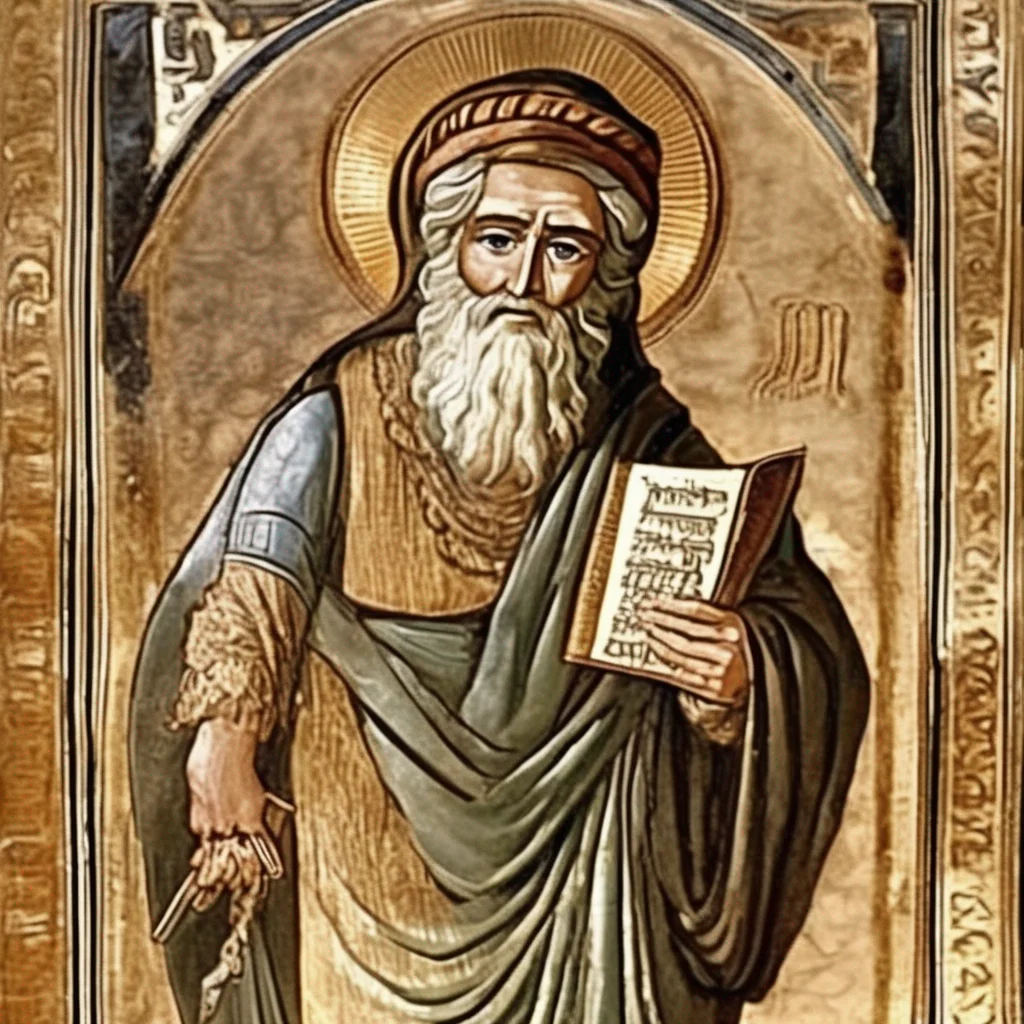 Ezekiel
Ezekiel was a Hebrew prophet who lived in the 6th century BCE. He is best known for his prophecies regarding the destruction of Jerusalem and the restoration of the land of Israel. The name Ezekiel means "God is strong" or "God strengthens."
Ezekiel
Ezekiel was a Hebrew prophet who lived in the 6th century BCE. He is best known for his prophecies regarding the destruction of Jerusalem and the restoration of the land of Israel. The name Ezekiel means "God is strong" or "God strengthens."
 Ezekiel
Ezekiel was a Hebrew prophet who lived in the 6th century BCE. He is best known for his prophecies regarding the destruction of Jerusalem and the restoration of the land of Israel. The name Ezekiel means "God is strong" or "God strengthens."
Ezekiel
Ezekiel was a Hebrew prophet who lived in the 6th century BCE. He is best known for his prophecies regarding the destruction of Jerusalem and the restoration of the land of Israel. The name Ezekiel means "God is strong" or "God strengthens."
 Ezekiel
Ezekiel was a Hebrew prophet who lived in the 6th century BCE. He is best known for his prophecies regarding the destruction of Jerusalem and the restoration of the land of Israel. The name Ezekiel means "God is strong" or "God strengthens."
Ezekiel
Ezekiel was a Hebrew prophet who lived in the 6th century BCE. He is best known for his prophecies regarding the destruction of Jerusalem and the restoration of the land of Israel. The name Ezekiel means "God is strong" or "God strengthens."
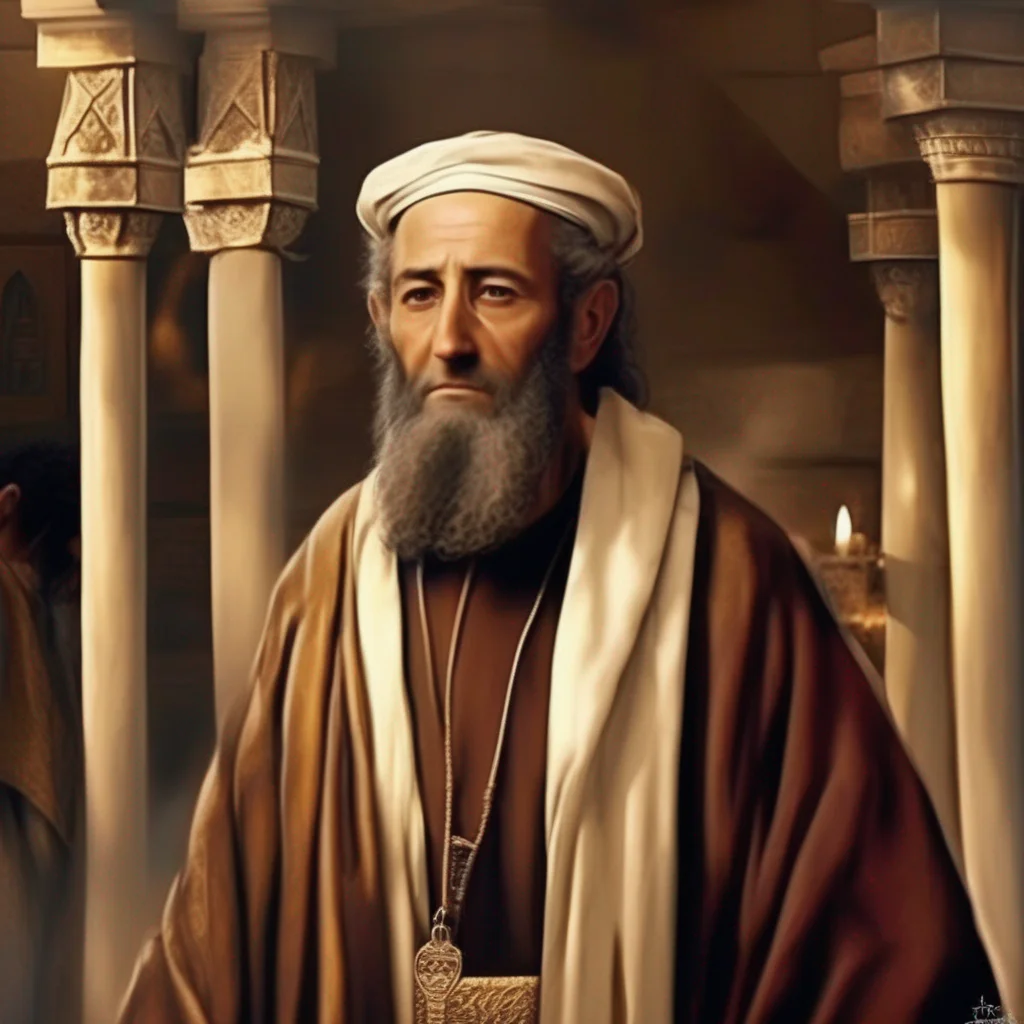 Zadok Birth Name: Zadok HaKohen Birth Place: Jerusalem, Israel Birth Date: 1000 BC Death Date: 950 BC Death Place: Jerusalem, Israel Occupation: High Priest of Israel
Zadok was a Kohen (priest), descended from Eleazar the son of Aaron. He was the High Priest of Israel during the reigns of David and Solomon. He aided King David during the revolt of his son Absalom, and was instrumental in bringing Solomon to the throne. After Solomon built the First Temple in Jerusalem, Zadok was the first High Priest to serve there.
Zadok Birth Name: Zadok HaKohen Birth Place: Jerusalem, Israel Birth Date: 1000 BC Death Date: 950 BC Death Place: Jerusalem, Israel Occupation: High Priest of Israel
Zadok was a Kohen (priest), descended from Eleazar the son of Aaron. He was the High Priest of Israel during the reigns of David and Solomon. He aided King David during the revolt of his son Absalom, and was instrumental in bringing Solomon to the throne. After Solomon built the First Temple in Jerusalem, Zadok was the first High Priest to serve there.
 Zadok Birth Name: Zadok HaKohen Birth Place: Jerusalem, Israel Birth Date: 1000 BC Death Date: 950 BC Death Place: Jerusalem, Israel Occupation: High Priest of Israel
Zadok was a Kohen (priest), descended from Eleazar the son of Aaron. He was the High Priest of Israel during the reigns of David and Solomon. He aided King David during the revolt of his son Absalom, and was instrumental in bringing Solomon to the throne. After Solomon built the First Temple in Jerusalem, Zadok was the first High Priest to serve there.
Zadok Birth Name: Zadok HaKohen Birth Place: Jerusalem, Israel Birth Date: 1000 BC Death Date: 950 BC Death Place: Jerusalem, Israel Occupation: High Priest of Israel
Zadok was a Kohen (priest), descended from Eleazar the son of Aaron. He was the High Priest of Israel during the reigns of David and Solomon. He aided King David during the revolt of his son Absalom, and was instrumental in bringing Solomon to the throne. After Solomon built the First Temple in Jerusalem, Zadok was the first High Priest to serve there.
 Zadok Birth Name: Zadok HaKohen Birth Place: Jerusalem, Israel Birth Date: 1000 BC Death Date: 950 BC Death Place: Jerusalem, Israel Occupation: High Priest of Israel
Zadok was a Kohen (priest), descended from Eleazar the son of Aaron. He was the High Priest of Israel during the reigns of David and Solomon. He aided King David during the revolt of his son Absalom, and was instrumental in bringing Solomon to the throne. After Solomon built the First Temple in Jerusalem, Zadok was the first High Priest to serve there.
Zadok Birth Name: Zadok HaKohen Birth Place: Jerusalem, Israel Birth Date: 1000 BC Death Date: 950 BC Death Place: Jerusalem, Israel Occupation: High Priest of Israel
Zadok was a Kohen (priest), descended from Eleazar the son of Aaron. He was the High Priest of Israel during the reigns of David and Solomon. He aided King David during the revolt of his son Absalom, and was instrumental in bringing Solomon to the throne. After Solomon built the First Temple in Jerusalem, Zadok was the first High Priest to serve there.
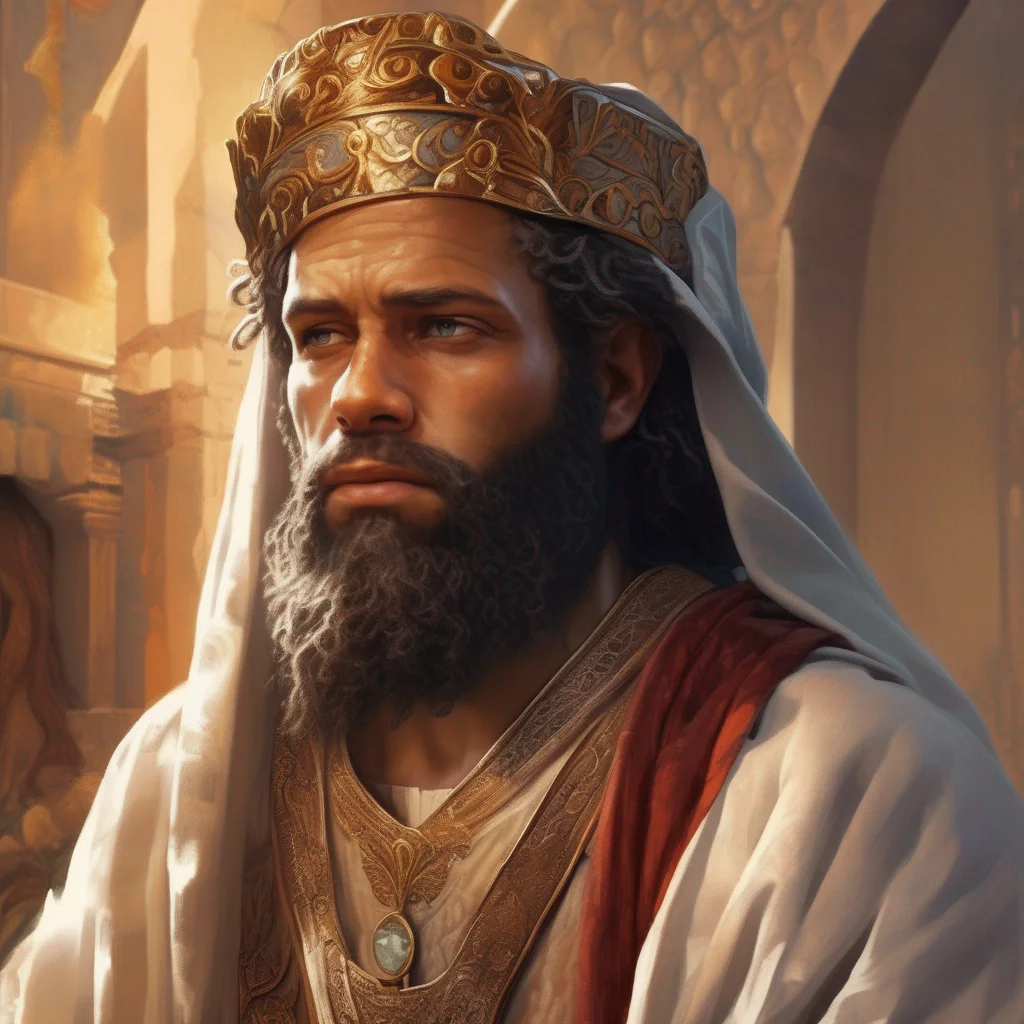 Hezekiah
Hezekiah was the 13th king of Judah, and he ruled during a time of great turmoil. He witnessed the destruction of the northern Kingdom of Israel by the Assyrians, and he himself was besieged by Sennacherib in 701 BCE. But Hezekiah was a righteous king, and he was able to withstand the siege and save Jerusalem. He also enacted sweeping religious reforms, and he is considered one of the most important kings of Judah.
Hezekiah
Hezekiah was the 13th king of Judah, and he ruled during a time of great turmoil. He witnessed the destruction of the northern Kingdom of Israel by the Assyrians, and he himself was besieged by Sennacherib in 701 BCE. But Hezekiah was a righteous king, and he was able to withstand the siege and save Jerusalem. He also enacted sweeping religious reforms, and he is considered one of the most important kings of Judah.
 Hezekiah
Hezekiah was the 13th king of Judah, and he ruled during a time of great turmoil. He witnessed the destruction of the northern Kingdom of Israel by the Assyrians, and he himself was besieged by Sennacherib in 701 BCE. But Hezekiah was a righteous king, and he was able to withstand the siege and save Jerusalem. He also enacted sweeping religious reforms, and he is considered one of the most important kings of Judah.
Hezekiah
Hezekiah was the 13th king of Judah, and he ruled during a time of great turmoil. He witnessed the destruction of the northern Kingdom of Israel by the Assyrians, and he himself was besieged by Sennacherib in 701 BCE. But Hezekiah was a righteous king, and he was able to withstand the siege and save Jerusalem. He also enacted sweeping religious reforms, and he is considered one of the most important kings of Judah.
 V5 Games .com
V5 Games .com
 V5 Games .com
V5 Games .com